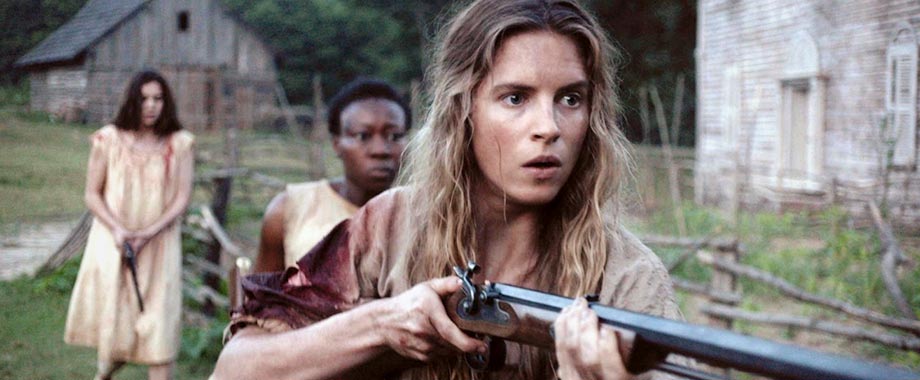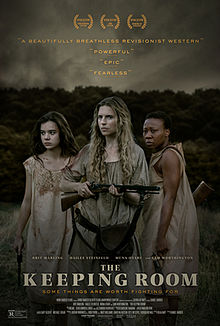The Keeping Room

“War is cruelty. There is no way to reform it. The crueller it is, the sooner it will be over,” introduces The Keeping Room, Julia Hart’s harsh tale of three women’s struggle to survive in 1865 in the American South at the end of the Civil War. Directed by Daniel Barber and starring Brit Marling, Hailee Steinfeld, Kyle Soller, Muna Otaru and Sam Worthington, it is a story about unrestrained violence towards women, justified by war. When two brutal sociopathic rapists and killers are sent ahead of the Union army to survey the conquered landscape, they spot Southerner Augusta (Marling). She escapes but they follow and find the farmhouse where she, her sister Louise (Steinfeld) and their female ex-slave Mad (Otaru) take up arms and desperately defend themselves against these relentless attackers.
The movie’s cinematography is gorgeous, with slightly soft chiaroscuro lighting that accents the ethereal fragility of the women in contrast to the brutality that threatens. Ominous sound effects increase the atmosphere of tension. There appears to be a Gone With the Wind influence to this film, from the evocative dramatic shots, to a bit of Scarlett O’Hara in the girls’ strength, determination and grit; and in Louise, a hint of “fiddle-dee-dee” petulance.
While not original in terms of plot, Hart’s screenplay is significant as a comment on the brutish senselessness of war, how it can turn normal men into monsters, and reduce humankind to its most uncivilised, amoral instincts. The story is also a feminist statement about the experience of being a woman in a world where awareness of vulnerability to threats of rape and violence – sometimes muted and psychological – are a given. Yet the film is not one-sided in this respect. The two villainous characters are endowed with some human dimension as they are also products of war, particularly Moses (Worthington). At gunpoint Augusta asks him “Why you come like you want a war?”, and he responds “Don’t know how to stop. I’m hardened, don’t think I’d know my way home from here …”
Muna Otaru is touching as ex-slave Mad, whose revelations of her own hardships growing up are poignantly expressed: “…there are many kinds of monsters in this world…” She helps the other girls stay strong: “What happens don’t matter, you just go on.”
Despite being somewhat formulaic, The Keeping Room is well acted, visually beautiful and moving, the clever ending having potential as a story that could continue.
Catherine Sedgwick
The Keeping Room is released nationwide on 17th June 2016.
Watch the trailer for The Keeping Room here:

























Facebook
Twitter
Instagram
YouTube
RSS